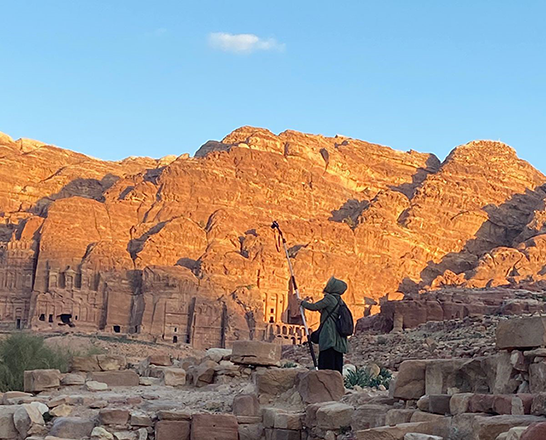AMMAN — After more than two years, Sela for Training and Protection of Heritage and Petra Development and Tourism Authority (PDTRA) announced the successful conclusion of the Jordanian Archaeology as a Sustainable Industry (JASI) project.
The JASI was launched in October 2022 in order to increase employment opportunities for Jordanian jobseekers in the Cultural Resources Management (CRM) sector.
“Funded by DROSOS FOUNDATION and PDTRA, JASI has delivered substantial impact by creating job opportunities, building local capacities, and fostering a deeper appreciation for archaeological preservation. Through comprehensive training programmes and community engagement, the project has laid the groundwork for a sustainable future in Jordan's heritage sector,” said CEO of Sela Maria Ronza.
Ronza added that over 230 job opportunities were created in the Petra region, while more than 250 community members received training through 20+ programmes.
These programmes were implemented in collaboration with national and international partners, enhancing the skills of over 40 young professionals and training 130 technicians to contribute to the sustainability of Jordanian heritage.
Another aspect is empowering women, where among the trained participants are Jordan’s first 10 certified conservation operators on rope, including five women, breaking new ground in the field.
“The project provided transformative experiences for over 60 high school and university students, helping them explore and define their scientific and professional aspirations,” Ronza said, adding that over 30 monuments were documented and maintained during the project, contributing to the safeguarding of Petra’s invaluable cultural heritage.
Meanwhile, JASI organised more than 50 community events, raising awareness about the importance of cultural heritage and promoting its preservation as a viable career path.
“As we close this project, we take pride in the positive change we have fostered within our community,” said Ronza, adding “JASI stands as a testament to the power of collaboration and shared vision in safeguarding Jordanian heritage while fostering economic and social benefits.
"Together with our partners, we have laid a strong foundation for future efforts to conserve and celebrate Jordan’s unique and rich heritage. This initiative has not only enhanced the capacity of local professionals but also created meaningful opportunities for the younger generation to contribute to preserving Jordan’s invaluable cultural heritage."
"As we look forward to upcoming projects, SELA remains dedicated to protecting cultural heritage by building the capacities of local communities.”
The Petra area's population largely depends on tourism and for many years, the communities who call Petra home, particularly Bedouin groups who live in and around the modern archaeological park, face economic instability due to fluctuations in the tourist market.
While local workers earn limited incomes through donkey and camel rides or selling trinkets, or their manual labour to seasonal archaeological projects, with so few opportunities to engage productively with the site, it should come as no surprise that Petra’s communities are often indifferent or even antagonistic to more commonly shared notions of the importance of cultural heritage management and preservation.
This lack of engagement has led to indifference towards cultural heritage management.
"With JASI, Sela has worked in partnership with the PDTRA to promote alternative career paths and sources of income related to the archaeological site of Petra for the members of neighbouring/host communities that come to play constructive roles in heritage management and preservation," Ronza concluded.
